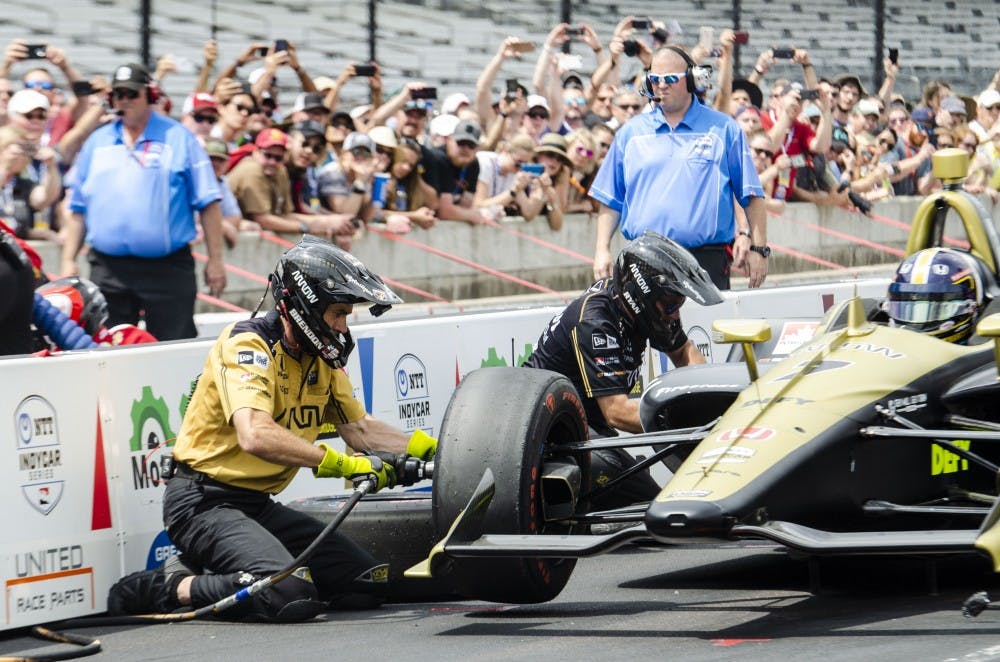INDIANAPOLIS — In the famous words of the “Cars” movie franchise’s Guido, “Pit stop.”
While Guido’s sub-four-second pit stop was about eight seconds quicker than the fastest time in Friday’s IndyCar pit stop competition of 11.794 seconds, it doesn’t take away from the importance of each one.
“Everybody knows how important the stops are,” said Bob Jansen, chief technician and pit crew chief for Arrow Schmidt Peterson Motorsports. “It’s all about not stressing and not putting too much emphasis on it even though it is obviously a key factor in every race.”
James Hinchcliffe of Arrow SPM will be starting the Indy 500 Sunday in the last row. He said his pit crew has been consistent this year, and he’s confident it will help propel him up the leaderboard once the green flag is waved.
“Pit stops are going to be a huge part of our move forward,” Hinchcliffe said. “Luckily over a 500-mile race, you’re going to have seven, eight, 10 pit stops depending on where the cautions fall. That gives us just that much more opportunity to try and chip away and make up ground on the leaders.”
According to indycar.com, a normal pit stop takes approximately eight seconds in any given race. If a driver pits 10 times during the Indy 500, they will spend almost a minute and a half in pit lane. With cars speeding around the track at an average of 150-plus mph, each team needs every second it can get.
“If one guy doesn’t perform at a pit stop, we lose three or four seconds,” Hinchcliffe said. “That could be 10-12 places.”
Say someone drops a wheel nut. Maybe the fuel isn’t plugged in quite right. What if a wheel develops a mind of its own and starts to roll away? Hinchcliffe said he doesn’t even have time to think during a pit stop because he has to be at maximum focus.
“You’re busy watching everything because you need to be able to react if something goes wrong,” Hinchcliffe said. “Those fractions of a second in a pit stop are so valuable that the more you’re paying attention and the quicker you can react to a change in plan, the better you’re going to be.”
The drivers are the obvious ones under pressure to perform, but when races are decided by fractions of a second, the pit crew has just as much to worry about because every detail matters.
“Whether it’s pit stops or the racecar itself … the biggest thing we have to do is attention to detail,” Jansen said. “It’s 100 percent most important, especially going into a long race like this. You have to make sure everything is perfect.”
If everything does go perfectly as planned, Hinchcliffe will be celebrating his first Indy 500 win at Victory Podium with plenty of people to thank from his team.
“Yeah fine, there’s one guy behind the wheel, but that car didn’t build itself. Those pit stops aren’t happening by the driver, and that setup didn’t come from my brain, that’s for sure,” Hinchcliffe said. “Every single member of this team — all 20 people it takes to put an Indy car on the road and perform on Sunday — they all play a crucial role.”
Contact Zach Piatt with any comments at zapiatt@bsu.edu or on Twitter @zachpiatt13.





